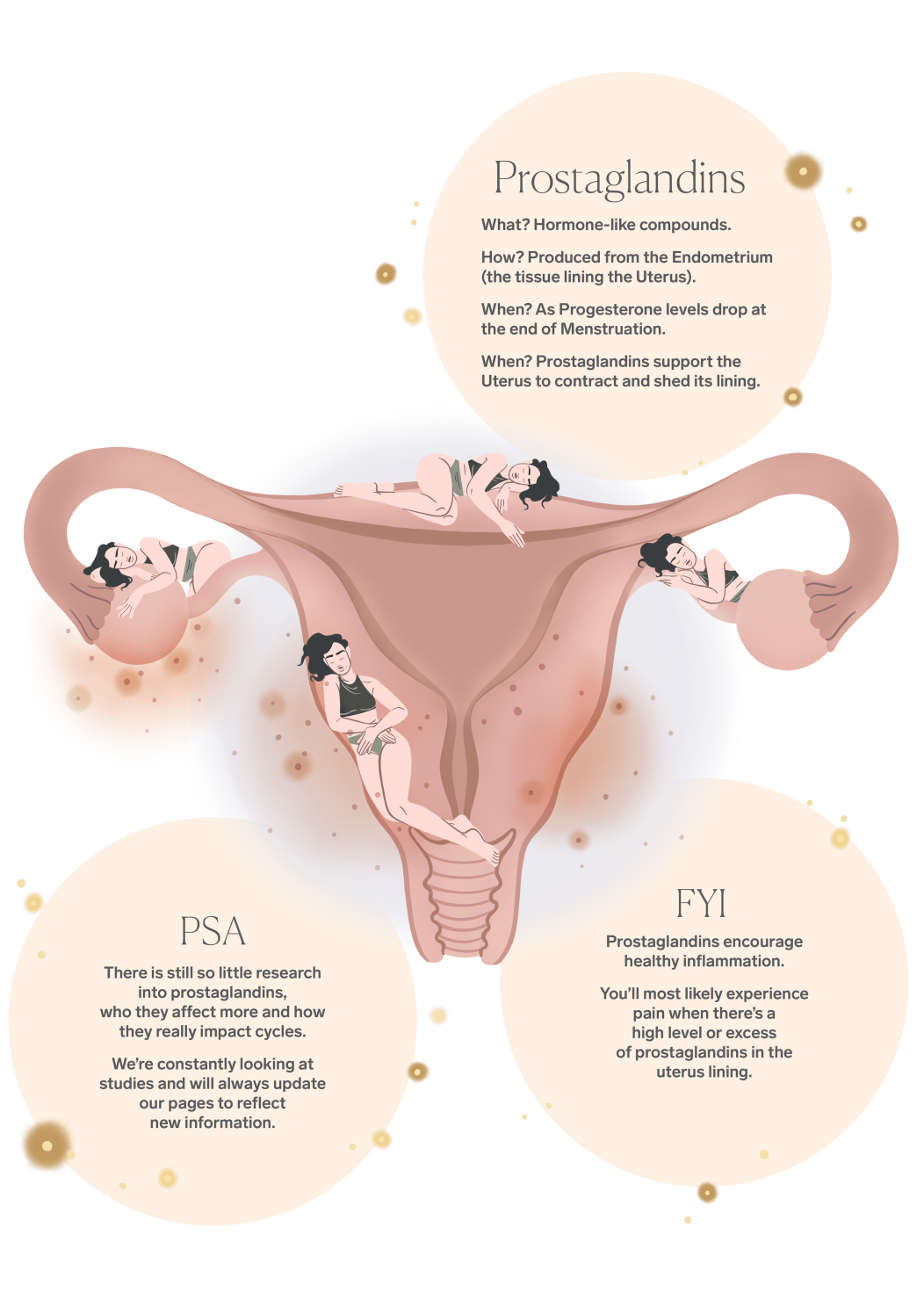The Zoom In: Prostaglandins and your Cycle
An overview of what prostaglandins are and how they’re linked to the menstrual cycle.
There are many parts of your menstrual cycle, and you may not know exactly what they mean. You could be wondering, what is menstruation, what happens in the luteal phase of your cycle, or how does hormonal birth control affect your period?
The menstrual cycle can be confusing when it comes to terms like prostaglandins, estrogen, and more. We'll be discussing what prostaglandins are and how prostaglandins and the menstrual cycle are related.
You’d be forgiven for not knowing what a prostaglandin is; it’s a term that tends to be left out of our day-to-day period-related vocab. Yet prostaglandins are really important because they can influence things including inflammation and blood flow, and are involved in various reproductive processes.

Prostaglandins are hormone-like compounds that have many roles in the body and are produced wherever they're needed. In the uterine lining, they’re produced from the endometrium as progesterone levels drop at the end of each menstrual cycle. This helps the uterus contract to shed its lining.
In the menstrual cycle, prostaglandins play an important role in the series of events that lead up to your period (the event we refer to as menstruation). This includes helping your uterine muscles contract, constricting uterine blood vessels, and encouraging healthy inflammation. (PSA: not all inflammation is bad - it's an important part of lots of your body's healthy processes). So, if you experience painful menstruation symptoms and menstrual pain, it could be the prostaglandins causing uterine contractions.
So if you’re thinking prostaglandins are the reason you get period pain, that’s probably not entirely correct. An excess of prostaglandins in your uterus is likely what causes period pain, not the prostaglandins themselves. What does “excess” really mean, and why exactly does it happen? To know this, we’ll need to wait for science to catch up...
But the painful period cramps that are associated with your menstrual cycle are not necessarily the cause of prostaglandins hormones. They trigger pain and inflammation that could come from uterine contraction, therefore causing the period cramps or sometimes severe period pain you experience. To be specific, the higher levels of prostaglandins in the uterine lining, the more painful menstrual cramps are. They can also lead to primary dysmenorrhea as well as secondary dysmenorrhea (menstrual cramps that can come before or after your period).
Your hormones can be complex and unpredictable. That’s why we’re here, on The Regular, to do what’s long overdue - to demystify what’s going on with our reproductive systems, our hormones and our whole cycle.
We’re here to support your day-to-day queries serving useful content that is uncomplicated and unbiased. No topic is too complicated or too specific for us to address/focus on.


